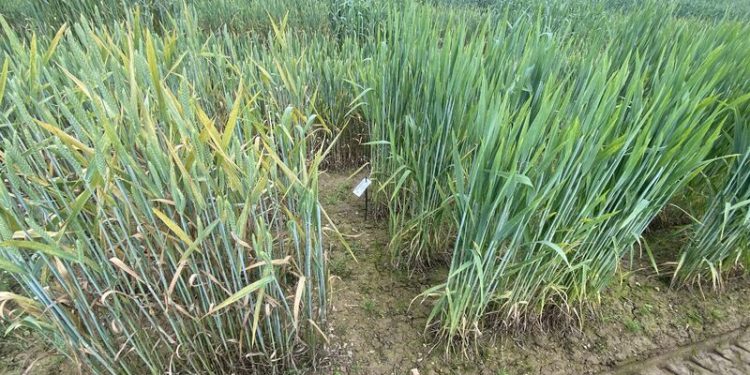Exploring the Efficacy of Resistance Genes in Emmer Wheat for Developing More Durable Varieties
Recent research led by Thomas Miedaner has unveiled promising advancements in the fight against yellow rust in Emmer wheat, a crucial crop for agricultural diversity. A study utilizing DNA markers identified nine genes associated with yellow rust resistance in a collection of 143 Emmer wheat lines. Notably, three of these genes have shown significant effectiveness in reducing disease impact, lowering infestation ratings by nearly three evaluation points.
This oligogenic inheritance pattern, where multiple genes contribute to resistance, offers a more sustainable solution compared to monogenic resistance, which relies on a single gene for complete resistance. The presence of these resistance genes suggests that the Emmer wheat varieties with these traits are likely to exhibit more durable resistance to yellow rust, a common and challenging pathogen.
The findings highlight a significant step forward in developing new, more resistant varieties of Emmer wheat. Current commercial varieties often show susceptibility to yellow rust, indicating a pressing need for enhanced resistance in breeding programs. By leveraging the identified genes, researchers and breeders can work towards creating more resilient varieties that maintain productivity despite disease pressures.
This research provides a valuable foundation for future breeding efforts and emphasizes the importance of incorporating multiple resistance genes to achieve long-lasting protection against yellow rust. As the agricultural sector continues to confront the challenges of plant diseases, these insights into genetic resistance offer a hopeful pathway toward more robust and sustainable wheat cultivation.
Error




